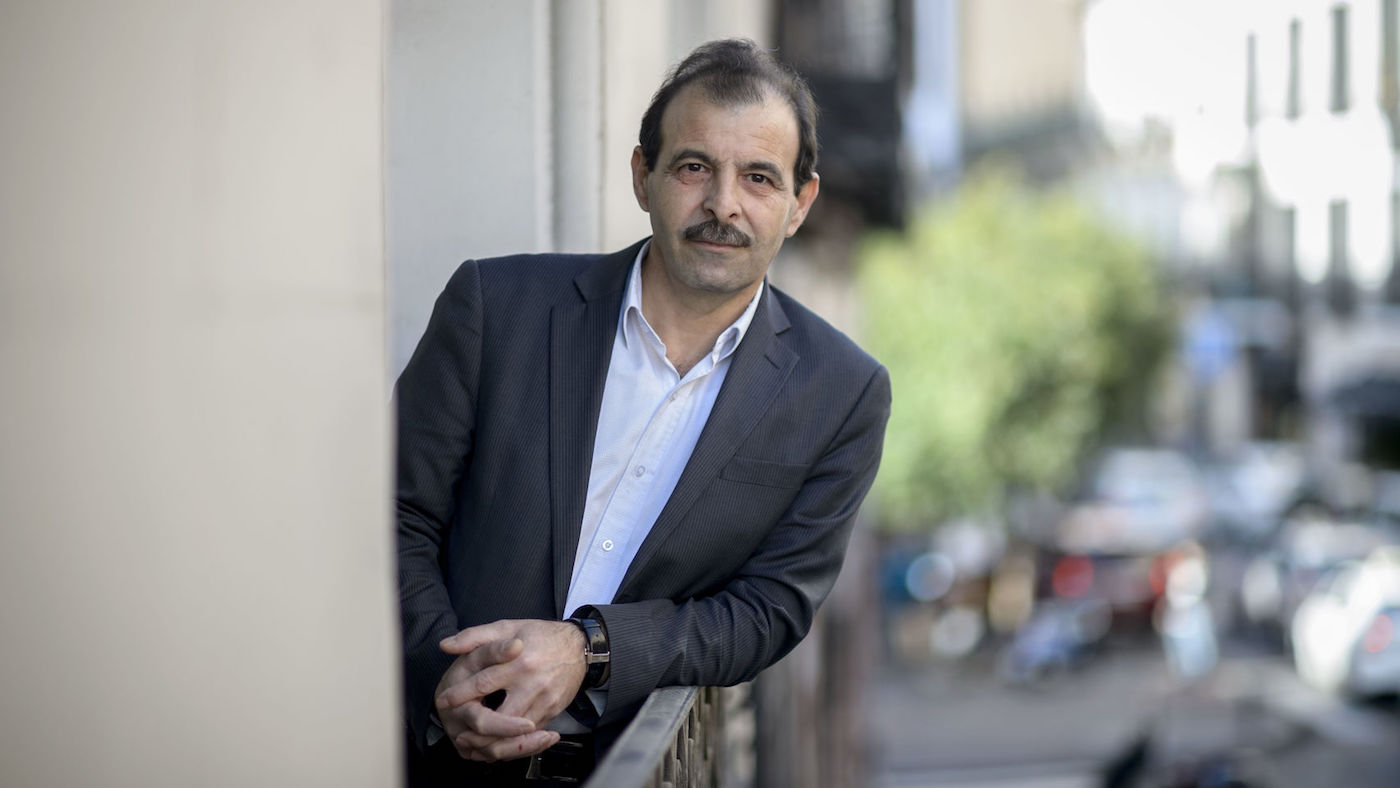My personal experience, with five years imprisonment from May 2006 to May 2011, and the experience of my small family who collectively have suffered over 70 years of incarceration during the reign of the Assads (father and son) from 1977, may no longer be as significant in view of the horror of the atrocities and abuses that we have documented in the recent 5 years and continue to document. Testimonies detailing what the Syrian people have suffered, and continue to suffer. Testimonies of arrests; deaths under torture; destruction of homes with women, children and civilians inside by barrel bombs and fighter jets; the use of chemical weapons; the use of starvation as a weapon against civilians in order to impose a siege on specific towns and areas. All this and more have become a significant concern of Syrian activists who are still subjected to the worst abuses by all sides in Syria.
Khalil Maatouk, along with dozens of other lawyers, remain detained by the Syrian regime with no news as to their whereabouts or health. Open software designer Bassel Khartabil and thousands of doctors, human rights defenders, civil society figures and entire families with their children are being held in the regime's prisons. Lawyers Razan Zaitouneh and Nazem Hamadi, along with their colleagues, remain abducted over a year after they were taken by an armed group in Duma. Lawyer Abdullah Al-Khalil was kidnapped over two years ago by an Islamic armed group. There has been no news of their whereabouts or health.
The conditions for those with the regime's prison system is unimaginable. For years the detainees are denied contact with the outside world. They are tortured badly, sometimes to the point of death. They are deprived of medical assistance. They are being deliberately starved. Large number of them are crammed in narrow prison cells so that they are forced to stand for hours without a chance to sit down. These conditions combined have led to the death of more than 50,000 prisoners in regime's custody to date.
Furthermore, detainees have also been executed by guards when there is a threat, or when the regime is pulling out of an area. This extermination was documented in the city of Idlib where detainees were shot in their cells before the guards fled the prison. There have also been reports of medical staff at military hospitals executing detainees by lethal injection.
As human rights defenders it is not the repression, imprisonment and torture that we have suffered that counts, but what we have seen and documented. The crimes against humanity, the war crimes committed and still being committed while the world looks on.
Our experience has revealed to the world that the human rights voice is weak and frayed when it comes to second countries and their economic and political interests. This fact has led to an increased distrust in the work of human rights organisations and a questioning of their usefulness.
We need to create new mechanisms for human rights organisations, so that they are not limited to documenting, and issuing appeals and statements. They need to have the capacity to further influence change, bring respect for human rights principles, hold violators responsible and restore confidence in the work of human rights organisations. For this we have created the Syrian Court for the Prevention of Impunity, which I hope will evolve to include all the areas that are lacking fair and impartial judiciaries and where impunity currently prevails.

The conditions for those with the regime's prison system is unimaginable. For years the detainees are denied contact with the outside world. They are tortured badly, sometimes to the point of death. They are deprived of medical assistance. They are being deliberately starved.
